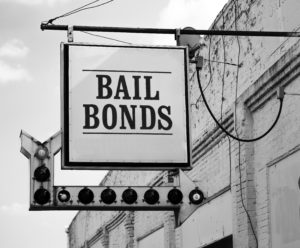Whenever a court case is wrapped up, the judge will either find the accused guilty or innocent. In the latter, one is able to go free. However, the former presents a variety of options. Some crimes do not amount to jail time. They could either attract a fine or certain hours of community service. In the case of drug or substance abuse and anger-related crimes or incidents, the court could prescribe rehabilitation or anger management sessions. This, however, is not always the case. Crimes such as robbery with violence and murder, among others, attract jail time.
Temporary Jail Time
This type of jail time varies. It depends on whether a judge grants you bail or not. Once you are arrested, you have to be held in custody. Once your court date is set, more commonly at a later time, you can either spend that time in jail or out in the free world as you go about your normal duties. For more severe crimes, bail may not be granted. However, if it is, you are required to show up for your court dates. If you do not, you are arrested, kept in jail plus you forfeit the amount you paid for the bail bond.
Who Determines Jail Time?
The court determines the jail time you get once you are sentenced. This is not haphazardly done. Instead, it follows guidelines that are set by the law. In a number of cases, the law stipulates the minimum mandatory sentence when it comes to jail time. If you are found guilty of such an offence, then your sentence would be upwards of the set duration and not any less.
It is important to familiarize yourself with the prescribed jail term punishments for whichever crime you, your friend or family member is accused of. This will help you stay informed on whether or not the punishment is fair after the sentence is administered. If the sentence is too harsh, then you can consider appealing the decision.

Factors Used in Jail Time Determination
The law does not always stipulate minimum or maximum sentences in jail time. This is primarily because all crimes are not the same. In some situations, there are special factors and variations to consider. In this case, the judge will consider a number of factors in determining jail time. These include:
- The accused and their criminal history. If they have not had any priors, then the fewer the jail time they are likely get
- The mental state of the accused. They might end up in a psychiatric facility as opposed to a jail for the prescribed period
- The severity of the crime
- Whether the accused was the primary actor in committing the crime or whether they were just an accomplice
All these inform the judge’s decision. These determinants can fall into one of two categories: a mitigating or an aggravating condition. Any determinant that falls in the former will play a role in reducing the number of years one is sentenced to jail. The determinants that fall in the latter, however, ensure that the accused gets more years in jail.